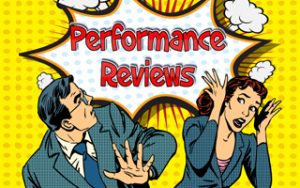Performance Review rating errors can cause your entire performance review program to lose credibility among your employees. With the consistent analysis of the program, employers can work to avoid this situation! Performance review appraisers/managers must be on guard against anything that distorts reality, either favorably or unfavorably.
These are the top 10 rating errors seen most often:
- Central tendency
Clustering everyone in the middle performance categories to avoid extremes of good or bad performance; it’s easy, but it’s wrong. This isn’t fair to employees who are making an effort, and it can be demoralizing. - Favoritism
Overlooking the flaws of favored or “nice” employees, especially those whom everyone likes. - Grouping
Excusing below-standard performance because it is widespread; “Everyone does it.” - Guilt by association
Rating someone on the basis of the company they keep, rather than on the work they do. - The halo effect
Letting one positive work factor you like to affect your overall assessment of performance. - Holding a grudge
A dangerous luxury that may result in your ending up in court. Never try to make employees pay for past behavior. - The horns effect
The opposite of the halo effect—letting one negative work factor or behavior you dislike color your opinion of other factors. - Bias
Allowing your bias to influence the rating. Bias can come from attitudes and opinions about race, national origin, sex, religion, age, veterans’ status, disability, hair color, weight, height, intelligence, etc. - Recency
Rating only recent performance, good or bad. Data should be representative of the entire review period. If you’re not keeping good notes, you may not remember the whole period. Make sure you are keeping records so that you can adequately describe performance over an entire performance period. - The Sunflower Effect
Rating everyone high, regardless of performance, to make yourself look good or to be able to give more compensation.

